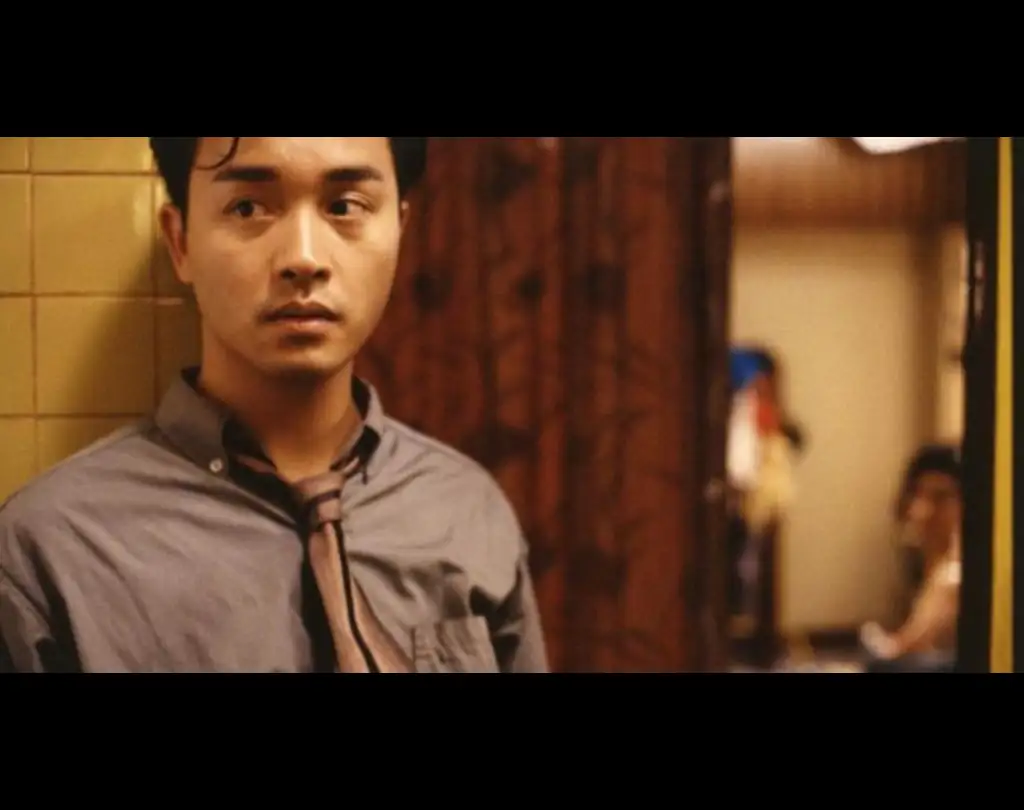In Wong Kar-wai's film maze, Days of Being Wild remains the broken prism that reflects the unhealable wounds in Hong Kong's collective memory. When Maggie Cheung's character Su Lizhen was counting the seconds of April in the damp floor, and when Leslie Cheung was dancing the lonely cha-cha to his reflection in the mirror, this work, which was regarded as a spiritual totem by countless fans, had long surpassed simple emotional entanglements and became a philosophical fable about the essence of existence.
The metaphor of the bird without feet: role interpretation from the perspective of existentialism
Xu Zai, played by Leslie Cheung, is one of the most complex characters in the history of Hong Kong films, and his psychological structure can be interpreted from Lacan's mirror theory. The gold-rimmed dressing mirror in the foster mother's living room (which appears nine times in the film) suggests that the character is forever trapped in the mirror stage of false self-identity. His search for his biological mother is actually a desperate touch of the "real world". The scene of barbed wire under the scorching sun in the Philippines is the visual presentation of the "traumatic reality" in psychoanalysis.
Xu Zai's self-exile coincides with the identity anxiety of Hong Kong, a city of immigrants. His persistent journey to find his biological mother is like the eternal questioning of the colonial subjects to their cultural motherland. Wong Kar-wai deconstructs traditional narratives with slow motion, trapping the characters in a cramped elevator and a clock that never stops - the glass windows that Su Lizhen repeatedly wipes, the rain that Chao Zai can never wipe away, and Mimi's sideburns that can never be combed neatly, these repetitive actions constitute an existentialist absurd theater. When Xu Zai said "I will always remember what I need to remember" on the platform in the Philippines, the dialectic of memory and forgetting has become the sword of Damocles hanging over the colony.
Tony Leung’s three-minute monologue at the end is a time capsule buried by Wong Kar-wai. This man with his meticulously manicured nails looks like both the reincarnated ghost of Ah Xu and a spiritual omen of Hong Kong's future. When Tony Leung Chiu-wai completed the legendary hair-combing scene in the small attic, this "footless bird" was still hovering in the sky of Asian films 28 years later. Its shadow was projected in Hirokazu Koreeda's "Air Doll" and Bi Gan's "Roadside Picnic", becoming an eternal spiritual totem in the era of globalization. In the digitally restored version of the Blu-ray disc, we can still hear Leslie Cheung's Spanish humming flowing between the grains of film, which is the melancholy code belonging to an entire generation.

The Commercial Breakthrough of Author's Film
Despite being a box office failure that year, the film's cult status at midnight screenings prompted Golden Harvest to change its strategy and support auteur films. Its unique "no-script shooting" mode (the entire film actually used only 23 pages of script) inspired directors such as Stanley Kwan and Fruit Chan. The Hong Kong Film Archive's 4K restored version in 2005 accidentally discovered Philippine street scenes hidden in the original negative (which were deleted for political reasons at the time), completing the complete metaphor of colonial history.
The pioneer of Milkyway Image’s style
Both Yu Dazhi's "Dark Flower" and Johnnie To's "PTU" are influenced by "Days of Being Wild", especially in the alienated treatment of urban space. The scene where Ah Xu was being chased on the streets of the Philippines directly inspired Takeshi Kaneshiro's running scene in "Chungking Express". Tony Leung’s appearance at the end opened up Wong Kar-wai’s narrative tradition of “character universe”, and this unfinished story gained cross-century resonance in “2046”.
When the Academy Awards awarded this work the title of "Best Chinese Film" for the third time, we finally understood the metaphor of the "bird without feet" - it is not only the fateful totem of Xu Zai, but also the collective portrayal of the entire era. In this postmodern emotional ruins, Wong Kar-wai tells us with poetic cruelty: all flights in search of a home will eventually achieve self-salvation in the mist of memory.
Further reading:




